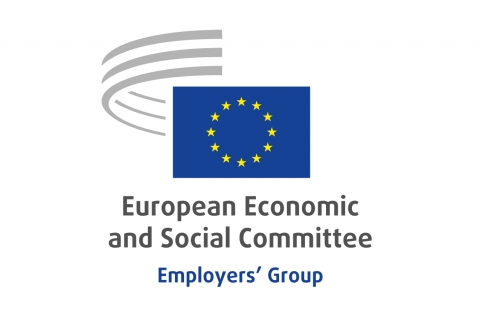European Economic
and Social Committee
Employers rebut EESC opinion on regulating minimum breaks for occasional passenger transport sector
21 September - The Employers' Group of the European Economic and Social Committee strongly voiced its disagreement with the EESC opinion adopted today on a regulation on minimum breaks for occasional passenger transport sector and pushed through a counter-opinion, which is in line with the European Commission proposal and the ongoing work in the European Parliament.
"The EESC opinion adopted today completely neglected that the Commission proposal is a unique opportunity to finally adapt existing rules to the needs of coach tourism drivers," said Employers' Group member Vasco de Mello, underlining that the sector has its own specifics and has completely different characteristics than the freight transport or even the regular passenger transport.
In May, the European Commission proposed the revision of the rules related to working time in the sector of occasional passenger transport. Changes are focusing on the driving and rest times and aim to introduce more flexibility, while ensuring efficient and high-quality services and improving working and driving conditions for drivers, including by reducing the stress and fatigue.
The Commission's proposal does not introduce any change to the minimum duration of breaks or rest periods, nor to maximum driving times. It only includes changes to the way in which breaks are organised, extension of the '12-day derogation' to occasional domestic passenger transport and the possibility to postpone daily rest by one or two hours, depending on the total daily driving period.
The work of coach tourism drivers differs considerably from that of truck drivers, in terms of operational and driving patterns: frequent stops, longer waiting times for tourists to visit places of interests (when drivers rest), relatively shorter driving bits and sometimes responding to specific customers' requirements.
The EESC Employers' Group counter-opinion, which has obtained 110 votes in favour, 151 against with 6 abstentions, will be appended to the EESC presenting a minority opinion, based on real data from the sector.
"It is not true that the drivers will be forced to drive longer and the rules will not be respected. On the contrary, some of the provisions allow drivers to decide and allocate better their breaks, since the possibility to break the 45-minute break in 15-15-15, which can correspond much better to the current situation on the ground. This is the main reason why introducing flexibility is key part of the Commission proposal, warmly welcomed by both, companies and drivers," de Mello added.
Presenting the counter-opinion, Group member Isabel Yglesias, explained that the new rules allow drivers to decide and allocate their breaks in a better way fitting their schedule. Therefore, flexibility in resting times and breaks proposed by the European Commission is justified and is in the interest of road safety, drivers, customers and businesses.
Moreover, the fatigue is not a general issue in coach tourism, since the average driving time per day is between 4 and 5 hours, much different than truck drivers.
Lastly, the Employers' Group recommends taking further measures to attract more people to the sector and harmonize the rules for obtaining driving licenses, while creating financial support for obtaining such licenses. More flexibility will certainly not hamper the attractiveness of the sector, on the contrary.
The EESC opinion gathered 156 votes in favour, 96 against and 11 abstentions.
For more information, please contact Daniela Vincenti, Employers' Group Communication Advisor +32 497 412095
Work organisation
Downloads
-
Counter Opinion TEN/816
